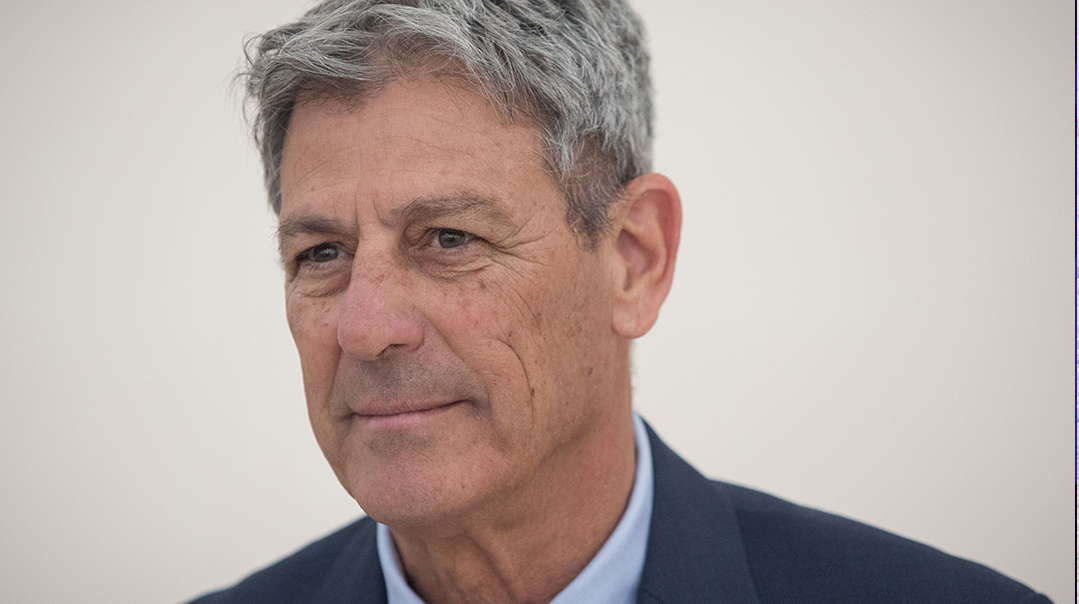Another Evacuation?

Yes, Israel might annex the Jordan Valley, but in an agreement with the Jordanians, Jerusalem might also give up rights to the peace islands

Ram Ben Barak
As it happens, Netanyahu’s announcement comes at a particularly sensitive time in relations with the Kingdom of Jordan and for the future status of Jewish settlements in the valley. Jews have long lived in the area. In 1939, before the foundation of the state, a group of farmers came to the banks of the Jordan to establish homes and plant their crops in Naharayim, south of the Kinneret. They were successful and stayed.
Almost ten years later, a year after the foundation of Israel, the small kibbutz lay directly in the path of the Jordanian Arab Legion and the Iraqi army as they marched through the heart of the country. A large force of infantry, tanks, and artillery surrounded the kibbutz. But the men of the kibbutz were determined to defend their land, and the enemy was beaten back after a hard-fought battle. From then until this very day Jewish farmers have worked the land in the area of Naharayim and Mivla’at Tzofar.
When former prime minister Yitzchak Rabin signed the 1994 peace agreement with King Hussein of Jordan, the “peace islands” of Naharayim and Mivla’at Tzofar received special treatment. The land would be considered Jordanian but Israel would hold property rights over the land for 25 years, a period that ends in five weeks. Ten months ago King Abdullah announced that he would not renew Israel’s “lease” on the land, due mainly to public pressure from the anti-Israel opposition in his country. The king tweeted at the time that “our decision to terminate the arrangement comes out of a desire to serve the interests of Jordan and the Jordanians.”
Since this announcement Israel has done much to renew the agreement with Jordan and leave the agricultural land in the possession of the kibbutzniks. Netanyahu’s announcement last week about his intention to impose Israeli sovereignty in the Jordan Valley raised the kibbutzniks’ fears of an evacuation. Yes, Israel might annex the Jordan Valley, but in an agreement with the Jordanians, Jerusalem might also give up rights to the peace islands.
Eli Arzi, who works the land in Naharayim, took part in the negotiations with the Jordanians at the time the peace agreement was reached.
“It’s necessary to raise a voice of protest and spur the appropriate people to come to the correct decisions,” he said in a conversation with Mishpacha. “Just as the prime minister can announce that he’ll annex the Jordan Valley, he can also announce steps he’s willing to take to meet some of King Abdullah’s demands.”
Edan Greenbaum, head of the Emek HaYarden regional council, also expressed concern. “Time is slipping through our hands, and there is no encouraging signal on the horizon. The lands that are going to be taken from us belong to kibbutzim in Emek HaYarden.” He adds: “These are people who worked the land with determination, fearlessly, making an extraordinary commitment. Friends of mine from the kibbutzim paid with their lives in those days when tilling the land involved extreme physical danger.”
Government sources stated that “serious diplomatic talks are being held on this topic, which naturally can’t be discussed publicly.” In addition, it was said: “The director general of the prime minster’s office is in constant touch with the settlement heads on this topic.”
(Originally featured in Mishpacha, Issue 778)
Oops! We could not locate your form.













